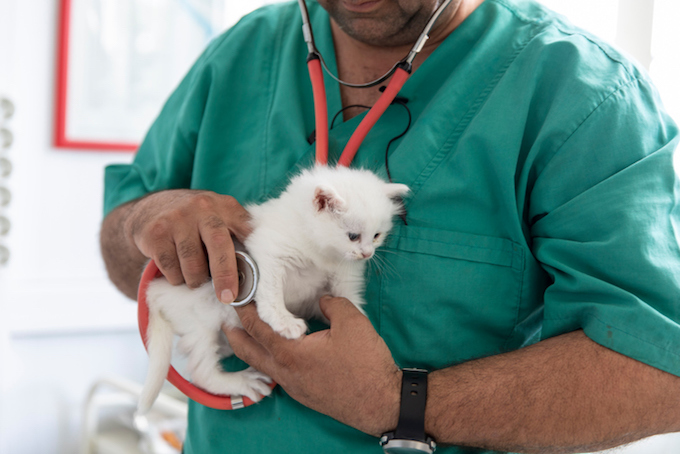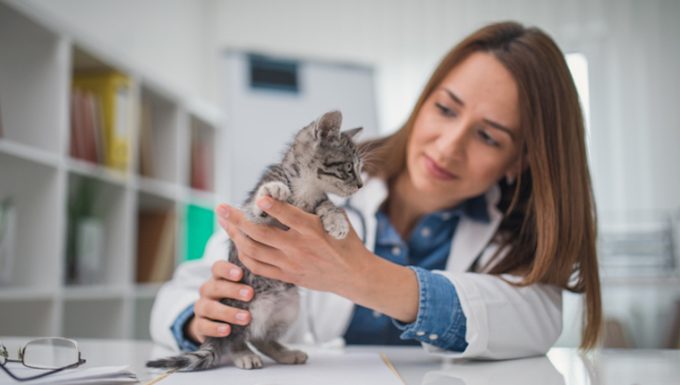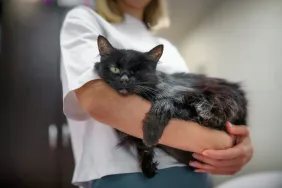E. coli infection in cats is a bacterial condition that develops in the intestines. The condition can eventually lead to blood poisoning.
Unfortunately, kittens are most at risk of the condition. This is because they might consume the milk of an infected mom cat.
Technically, the disease is also known as colibacillosis in cats.
If you see the signs of E. coli infection in your cat, then get to a veterinarian for a proper diagnosis and treatment.
Here’s what you should know about the symptoms, causes, and treatments for the condition.
Symptoms of E. Coli Infection in Cats
The condition produces a range of symptoms. For example, some of the most common symptoms include:
- Dehydration
- Vomiting
- Loss of appetite
- Depression
- Skin feeling cold to the touch
- Diarrhea
- Becoming lethargic
- High heart rate
Causes of E. Coli Infection in Cats

The cause of the condition is usually an infected mom cat. However, the following factors can also be contributing causes to the condition:
- Unclean environment
- Mammary gland inflammation
- Problematic birth process
- Raw meat
Additionally, unborn kittens can develop the condition while in the womb.
Treatments for E. Coli Infection in Cats
Firstly, your vet will ask about your cat’s symptoms. Secondly, your vet will ask about any circumstances where your cat could have come into contact with the bacteria.
Thirdly, a full physical examination will be carried out. Blood and urine tests will also be taken. Additionally, a sample of your cat’s poop will be analyzed.
Unfortunately, many kittens suffering from the condition need to be hospitalized. Fluid therapy be will used. Additionally, antibiotics will be prescribed to fight the infection.
As always, if your vet prescribes your cat any medicine, make sure to stick to the correct dose and frequency instructions. Also, complete the full course of medicine.
Ultimately, prevention is better than cure with this condition. So make sure any pregnant cats are in good health and benefit from clean and sanitary living conditions.
Have you ever cared for a cat who suffered from this condition? How did your vet help your cat recover? Let us know in the comments section below.









